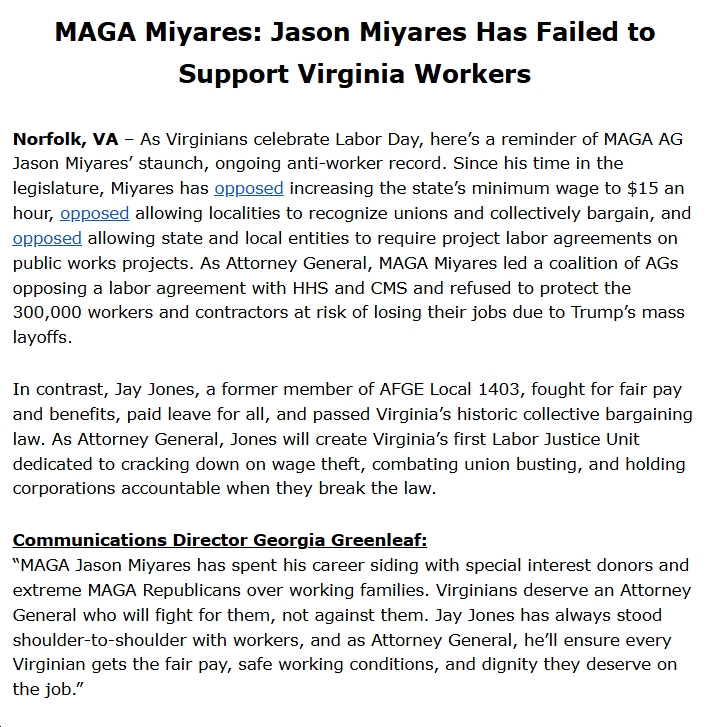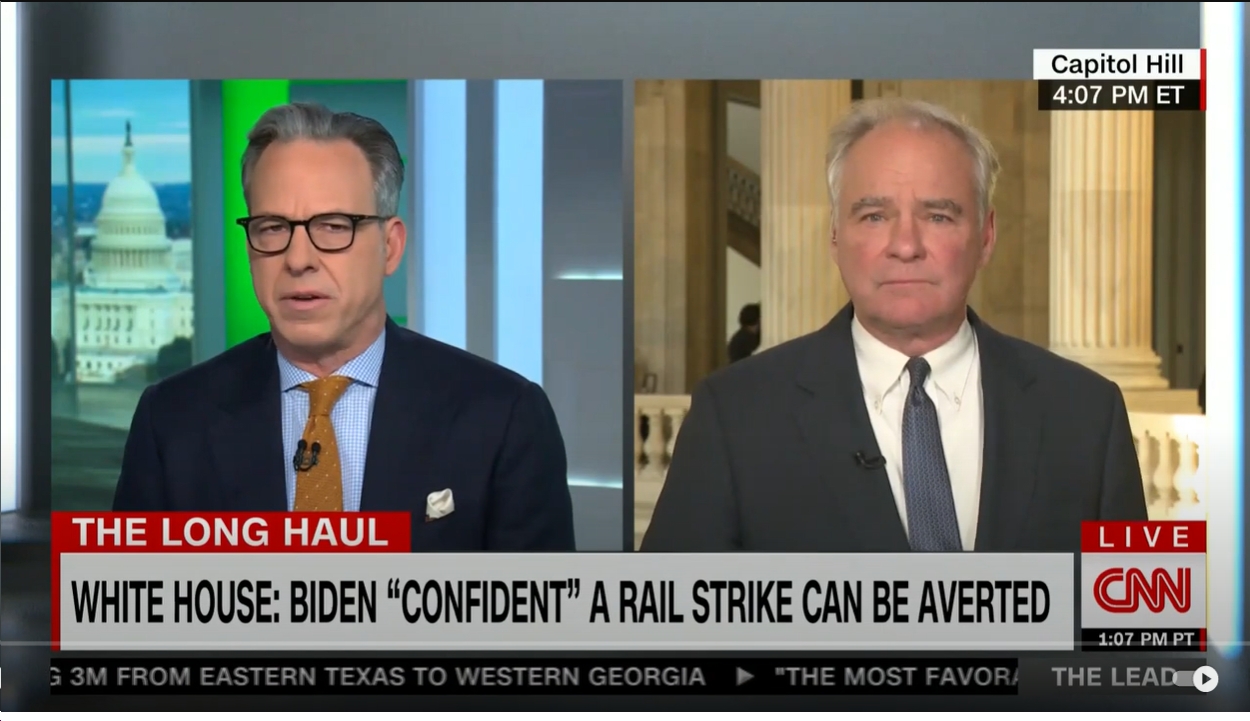From the Commonwealth Institute for Fiscal Analysis:
COVID-19 & Unemployment Insurance: Recent Reforms & Next Steps for Virginia
During recessions, Virginia’s unemployment insurance (UI) system serves as the first line of defense by helping to stabilize the economy and keep families afloat. Given recent state and federal policy changes to the UI system in response to the COVID-19 pandemic, this piece summarizes newly-enacted reforms, with a focus on the Coronavirus Aid, Relief, and Economic Security (CARES) Act, and highlights additional reforms Virginia needs to make promptly in order to take full advantage of new federal funding for UI, particularly in the area of work-sharing, an innovative practice that helps employers and employees avoid layoffs.
In recent weeks, initial unemployment claims in Virginia have rapidly increased. While there were 2,706 claims filed for the week ending March 14, there were 46,277 claims filed for the week ending March 21, and 112,497 claims filed for the week ending March 28. This surge in claims mirrors the national trend: over 6.6 million initial claims were filed for the week ending March 28, representing an increase of more than 3.3 million claims from the week before. These are unprecedented numbers compared to any prior recession, including the Great Recession.
Before delving into the provisions of the CARES Act, the table below offers a snapshot of Virginia’s UI system prior to the newly-enacted reforms. In 2018, Virginia’s average weekly benefit of $305 replaced less than 30% of Virginia’s average weekly wage. Even the maximum weekly benefit of $378, which has not increased since 2008, only replaced about 34% of the average weekly wage in 2018. These numbers fall well below many other states.
Virginia’s Baseline: UI System Prior to CARES Act
| Minimum Benefit | Maximum Benefit | Maximum Weeks | Avg. Weekly UI Benefit (2018) | Avg. Weekly Wage Replacement Ratio (2018) |
| $60 | $378 | 26 | $305 | 27.5% |
The Coronavirus Aid, Relief, and Economic Security (CARES) Act
The CARES Act, which was signed into law on March 27, both strengthens and expands unemployment insurance on a temporary basis. Overall, the UI-related provisions of the CARES Act advance three goals in response to COVID-19: expand eligibility, expand weekly benefit amounts, and expand the duration of benefits.
Expanded Eligibility. To reach working people who are typically ineligible for UI benefits, or who have exhausted regular UI benefits, the CARES Act established the new Pandemic Unemployment Assistance (PUA) program, which will remain in effect until December 31, 2020. With PUA, Virginians can obtain benefits upon self-certification that they are (1) fully or partially unemployed or (2) unable to work because:
- They have been diagnosed with COVID-19 or are experiencing COVID-19 symptoms and seeking a medical diagnosis;
- A member of the individual’s household has been diagnosed with COVID-19;
- They are providing care to a family member or someone in the household who has been diagnosed with COVID-19;
- They are the primary caretaker for a child or another person in the household who cannot attend school or another facility that is closed due to COVID-19;
- They are unable to work because of a quarantine imposed in direct response to COVID-19 or because of a recommendation to self-quarantine by a health care provide;
- They were scheduled to begin employment and do not have a job or are unable to reach the job as a result of COVID-19;
- They have become the breadwinner because the head of the household has died from COVID-19;
- They have to quit their job as a result of COVID-19;
- Their place of employment has closed as a result of COVID-19.
PUA also extends to people who are self-employed, those seeking part-time work (as opposed to full-time employment), and individuals who do not have sufficient work history to qualify for normal UI benefits. PUA does not cover people who are able to telework or who are receiving paid sick leave or other paid leave benefits. In addition, PUA excludes workers who are ineligible for regular unemployment insurance for immigration-related reasons, and the federal government may apply additional criteria for immigrant workers.
Expanded Weekly Benefit Amounts. Until July 31, 2020, the CARES Act supplements regular UI benefits, and PUA benefits, by $600 per week. This supplement, authorized by a new Federal Pandemic Unemployment Compensation (FPUC) program, is funded fully with federal dollars and will help families weather this economic crisis. With an extra $600, the maximum weekly benefit in Virginia will climb to $978 per week.
Expanded Duration of Benefits. The CARES Act authorizes an additional 13 weeks of federally funded UI benefits (on top of Virginia’s 26 week baseline), which are available after an individual exhausts regular state UI benefits. PUA benefits are available for a total of 39 weeks, inclusive of any weeks for which regular UI benefits were received. The extension of benefits expires on December 31, 2020.
Next Steps For Virginia
Newly enacted federal legislation offers strong incentives and a window of opportunity for states to strengthen their UI systems in response to COVID-19.
Establish a “Work-Sharing” Program. Work-sharing is a kind of unemployment benefit in which employers reduce the hours of their employees rather than making layoffs. Workers benefit because they remain employed and become eligible for pro-rated UI benefits to offset wage losses. Employers benefit because work-sharing allows them to be nimble during recessions and rebound quickly when the economy recovers, without having to hire and train new employees.
In 2014, Virginia passed work-sharing legislation, but the law expired in 2016. This now puts Virginia’s employers and working people at a disadvantage because work-sharing can be a powerful tool during recessions. According to one estimate, work-sharing during the Great Recession helped to save more than 500,000 jobs across the country.
The CARES Act offers strong incentives for states to create these programs. For states that do not currently have a work-sharing program (including Virginia), the federal government will fund 100% of a qualifying program through December 31, 2020, if the state enacts a work-sharing law. The CARES Act also fully funds work-sharing programs that are already established in law. For states that only temporarily establish work-sharing programs, the federal government will fund 50% of the costs until December 31, 2020, with employers covering the remaining 50% of costs. In addition, the CARES Act includes $100 million in grants to strengthen and promote work-sharing programs. These grants, however, will only be available to states that have qualifying programs established in law. To take advantage of these resources, Virginia should swiftly enact a permanent and robust work-sharing program.
Increase UI Participation in Virginia. While UI claims have been increasing recently as a result of the COVID-19 pandemic, Virginia’s recipiency rate, the percentage of unemployed workers who are receiving benefits, generally lags behind the national average. Because one of the main goals of the UI system is to help keep families and communities afloat during economic downturns, a low recipiency rate undermines the overall effectiveness of the system and puts the economy at greater risk.
The Share of Unemployed Workers in Virginia who are Receiving Regular UI Benefits (Recipiency Rate) Generally Lags Behind National Average (2009-2019)
Year | Recipiency Rate for VA | US Average Recipiency Rate |
2009 | 29.9% | 39.7% |
2010 | 20.7% | 29.8% |
2011 | 18.3% | 26.2% |
2012 | 18.1% | 26.0% |
2013 | 17.6% | 25.3% |
2014 | 16.4% | 26.3% |
2015 | 15.6% | 26.6% |
2016 | 16.1% | 26.7% |
2017 | 15.6% | 27.4% |
2018 | 16.0% | 27.5% |
2019 | 15.4% | 27.7% |
The Families First Coronavirus Response Act (FFCRA), which Congress passed before the CARES Act, sets out a number of steps that states must take to increase recipiency rates. For example, under the FFCRA, in order to get federal funds to help with UI administration Virginia must require that all employers inform their employees about the availability of unemployment insurance at the time of separation. The Act also requires Virginia to notify applicants when a claim for UI is received and provide technical assistance to help make sure the application is processed successfully. Finally, states are required, within one year, to complete an analysis of their UI recipiency rate and describe actions they are taking to connect more unemployed workers to UI.
By enacting a strong work-sharing program and ensuring that more eligible workers use the UI system, Virginia’s employers and working people will not only be better positioned to navigate the COVID-19 pandemic, but any economic downturn in the future.
— Phil Hernandez, Senior Policy Fellow & Counsel

![[UPDATED: VA Senate Dems Pass $15/Hour Minimum Wage Bill] VA House Democrats Pass Top Priority, Paid Sick Leave](https://bluevirginia.us/wp-content/uploads/2026/02/housedemspaidsick.jpg)















